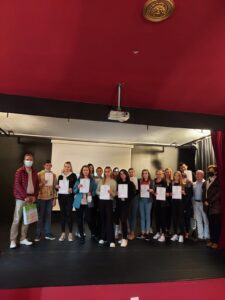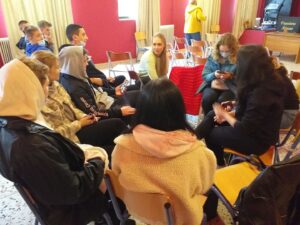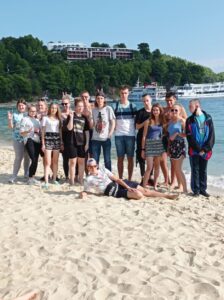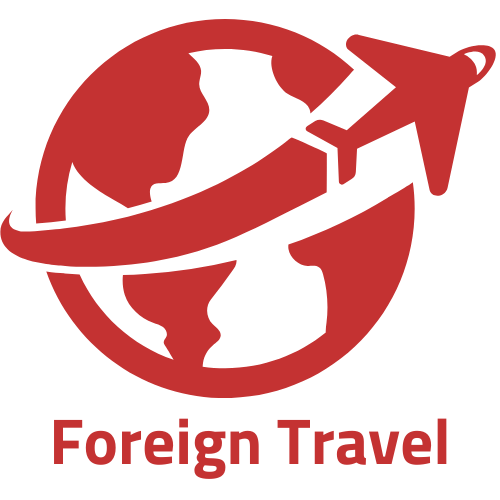Summary of the transnational mobility of pupils project. “Foreign travels – innovative teaching methods at the ZST Lipno Technical School”
Zespół Szkół Technicznych in Lipno is implementing a project financed by the European Social Fund under the Knowledge Education Development Operational Program. Thanks to the funds obtained, the students of our school had a 12-day mobility to Greece, where they took part in the educational program at the Leptokarya General School.
The most important information about the project
The initiative is implemented under the project “Transnational Student Mobility" under the Knowledge Education Development Operational Program. The main element of the project is cooperation between partner schools from European Union countries, which jointly implement educational activities for school youth. For the Technical School Complex in Lipno, taking such actions was an important step on the way of strengthening the European, transnational dimension of our School – and at the same time increasing the attractiveness of our educational offer, within which we want to educate the competences of the future!
The partner school in the project was the Leptokarya General School. We decided to cooperate with this institution because of the entity’s experience in the implementation of transnational projects – including schools from Poland, as well as the location, creating very convenient conditions for an educational trip.
For the implementation of the project, the School obtained PLN 246 576.00. Thanks to these funds, two transnational mobility was carried out, in which a total of 33 students of the school, which was selected in the recruitment process in the classes:
– Mechatronics technician
– IT specialist
– logistics technician
– techniques economist.
The goals of the project were defined by us already at the application stage. We identified an increase in key competences among mobility participants as a key element of the implementation of the activities, but the ambitiously designed activities were designed to extend and consolidate the impact of the project, both in participating schools and in the entire local community.

Mobility to Greece
Mobility to Greece was carried out by the School on 3-15 October 2021. Due to the subject of the project, it was decided that carrying out both mobilities planned in the action at the same time would bring the best results. The 13 days consisted of: 2 days for a coach trip from Lipno to Platamonas, where the students were accommodated, the implementation of the cultural program and days off for the cultural program. All the time, the students were supervised by a professional pilot and teaching staff, who in addition to providing care to the youth also provided organizational and substantive support in Greece.
How were the next days of mobility? The program was very intense and almost every minute was used up! Already on the day of arrival, the young people took part in an organizational meeting, during which we got acquainted with the detailed program for the following days, health and safety at work, hotel rules, and indications in connection with the coronavirus pandemic. We also had the opportunity to meet the mentors who supported the students over the following days. Exhausted from the trip but full of positive attitude, we used the rest of the day to get to know the area and the hotel complex… And of course for a visit to the seaside!
The main element of mobility was cooperation with young people from the host school. During our first visit to Leptokarya General School, we were able to meet this institution and the participants from the Greek side. Both schools gave presentations about the regions we come from. Later, we participated in integration activities. After the so-called “Ice breaking games" the youth were divided into task groups in which they were to work until the end of the project. Each of them included students from Poland and Greece. Thanks to this way of working, young people broke the language barrier faster, they had the opportunity to get to know each other better, and the international cooperation significantly increased the intensity.
Subsequent classes were aimed at introducing the project into the substantive area – and the lecture was followed by work on material results, during which the participants, under the supervision of mentors, used the newly acquired knowledge and skills in practice. Lectures and classes were devoted to various issues related to the subject of mobility. During the last visit to the school, it was time to present the results – the participants presented the results of their work and summarized the activities carried out during the mobility by group. Then the head of the school in Greece and the teaching staff participating in the initiative thanked the students and solemnly handed over certificates confirming participation in the initiative and increasing their competences.
In addition to substantive classes, the youth also took part in numerous workshops and field activities. These additional activities were correlated with the theme of the project and allowed for a much better understanding of the local specificity, but also culture and tradition. Among such activities, we can mention:
– a visit to a local logistics company and a beverage warehouse. During the meeting, students could learn more about the functioning of such an enterprise, customer expectations, industry development prospects and the possibilities offered by the use of digital tools, including online communication;
– a visit to the hotel, restaurant and café, combined with a barista course and culinary workshops. How is tourism developing in the Olympic Riviera region? What distinguishes it from the rest of Europe? What do tourists pay special attention to? These are just some of the things we could learn then. In addition, students under the supervision of the chef learned how to prepare a traditional Greek salad, and during the barista training, the most popular types of coffee in Greece;
– a Greek dance course, which was conducted under exceptional circumstances – in a Greek amphitheater;
– Public speaking activities that were conducted before the school presentations. It allowed the young people to significantly strengthen their faith in their own abilities and self-confidence, and the tricks and methods that we learned made our presentations turn out great!

Topics and results
The subject of the project has been selected so that its cross-sectional nature meets the needs and interests of all project participants. As part of mobility:
– students from the IT technician and mechatronic technician classes developed a website devoted to the perspectives of the tourism and transport industry in Poland and Greece. After preparing the template and analyzing the functionality, young people in international teams started to develop a mock-up of the website using WordPress. Later, the students were also responsible for publishing the articles on the website and conducting the appropriate training for the other participants.
– students from the classes of ecomonist technician and logistics technician were asked to prepare articles on issues such as the tourism and logistics industry in Poland and Greece. The tasks of the youth included the collection of relevant content and information, graphic materials to illustrate the studies, as well as the preparation of texts in 3 languages: English, Greek and Polish. The participants underwent training on copywriting, SEO and researching the interests of Internet users, and the knowledge in this field was used by them during the preparation of studies on a given topic.
The website developed by the students can be viewed on the Internet at http://foreign-travels.pl/. In addition to this website, participants also prepared a promotional brochure about the entire transnational mobility project.
Cultural program
The intensive substantive mobility program was not all that awaited students in Greece! The aim of transnational mobility projects is not only to strengthen practical skills among young people, digital or language competences, but also cultural, social and civic competences. Getting to know a new country, its customs and achievements allows students to broaden their perspectives and even look at their own country from a completely new perspective. And in Greece, there is definitely a lot to see! The cultural program was carried out during free hours and on weekend days. What we were able to see and experienced delighted us to such an extent that many people would love to return to Greece. Field activities were also prepared in such a way that young people had the opportunity to learn as much as possible about the host country.
What did we see? Among the many attractions there are, among others Meteora – a historic monastery complex, one of the most interesting examples of religious architecture in Europe. We also visited Thessaloniki, considered by many Greeks as their true capital due to its historical, economic and scientific importance. Among the less known “pearls of the Riviera" we have reached, we can mention Litochoro, a mountain town at the foot of Mount Olympus, from where we went to the Mount Olympus National Park and the Enipeas gorge, Platamonas with a fortified castle and archaeological site, or a charming open-air museum town – Stary Panteleimon. In addition, we spent our free time on the beach (if only the weather was good) or on walks. The participants especially remembered the cruise to the island of Skiathos. On the ship itself, we didn't even have a moment to be bored, and the service under the watchful eye of the captain provided us with many attractions. Skiathos, on the other hand, delighted us with its wonderful beaches and charming landscape.

Other elements of the project
Mobility itself is of course the most interesting element of the project, but its other elements were also very important, which also had a huge impact on the degree of achievement of the intended results. All activities started from the planning stage, when the school acquired a foreign partner and entered the competition for applications conducted by the Foundation for the Development of the Education System. Already then, we developed the framework assumptions of the project, including goals and a mobility plan. Detailed arrangements between the partners were made during the preparatory visit, which took place shortly before the mobility itself.
After receiving a positive decision on financing, our activities gained momentum, and the project team selected from among the teaching staff started to promote the project. Thanks to this, the school and local community, and above all, potential participants, who were informed about the upcoming recruitment, learned about the planned mobility. The interest in participating in the educational trip was high, and as part of the recruitment, we selected 33 participants who represented the ZST in Lipno, Greece.
All students qualified for the project took part in a preparatory course, i.e. a series of special classes and meetings, which were aimed at improving and equalizing the competences of participants, so that they could benefit from the foreign mobility as much as possible. The course included the following blocks of classes:
– English lessons, 15 hours. The classes were aimed at revising, consolidating and expanding the vocabulary as well as systematizing the grammar, so that students had the possibility of correct and effective communication during mobility. The topics covered issues related to everyday life on the one hand, and on the other, the substantive area of the project.
– Greek language classes – a total of 3 hours. In this case, the young people learned the basic phrases and vocabulary that helped them in everyday life in Greece.
– Cultural preparation in the amount of 5 hours. The classes were conducted by teachers of history, geography and WOS. The aim of the course was to strengthen students' knowledge of the history, culture, geography, political and economic situation of Greece. It was also important to explain issues related to stereotypes and cultural differences, as well as norms of behavior. The classes allowed the students to find themselves in a new environment and understand the Greek community.
– Pedagogical and BHP classes, 5 hours in total. The classes were conducted by teachers, class educators, project coordinators – and in part, which was already held in Greece, by mentors and hotel representatives. The students were acquainted with the principles, objectives and conditions of the project.
– Design classes – 5 hours. The classes concerned substantive issues that were discussed during the mobility. It was also the time to prepare presentations to Greek students and teachers during the trip.
In addition, the School organized a series of information meetings attended by parents and students qualified for the project. Participants were acquainted with the details of contracts, issues related to security, rules and sources of financing in the project, or lists of documents necessary to be assembled before departure.
After the mobility itself, it was time to promote and disseminate in the project, which were carried out using:
– communication in social media of schools, participants, as well as the project itself,
– school and project websites,
– promotional and informational meetings,
– distribution of promotional materials,
– publications in local media.
Evaluation and impact
Evaluation in the project was continuous, multi-stage, and the evaluation covered not only the effectiveness of the implementation of the educational program, but also the organization and management of the project, the level of participants' satisfaction, compliance with the adopted activity schedules, etc.
The aim of the evaluation activities was also to determine the degree of achievement of the adopted results by the School. Our assumptions regarding the project and its impact, although ambitious, were implemented to a high degree, which is confirmed by the results of the surveys, material results assessments, partial reports and descriptive assessments.
Among the goals of the project that we have implemented, we can mention:
1. Main objective: strengthening the key competences of mobility participants, including in particular the level of competences in the field of understanding and creating information, digital, learning, personal and social, multilingualism, and in the field of natural sciences, technology and engineering.
2. Acquiring new practical skills by the participants – especially in the area of digital and computer skills.
3. Support for students with reduced educational opportunities.
4. The creation and implementation by the school of new, innovative methods aimed at activating students to activities promoting the school.
5. Increasing the involvement in learning and school life among students, not only project participants, encouraging students to learn more effectively and behave better, willingness to increase their own competences, develop European attitudes.
6. Enriching and making the educational offer of the school more attractive.
7. Introducing pedagogical innovations at school and increasing the effectiveness of the educational process in the institution.
8. Raising the competences of the teaching and management staff.
9. Increasing the competitiveness of our school on the local educational market.
In addition, the project has set tactical goals regarding the mobility itself:
1. Organization of high-quality preparatory classes for mobility, conducted by both sides of the project – Polish and Greek.
2. Implementation of a foreign mobility program tailored to the level of students and organizational possibilities of the participating Schools, based on activities in the field of formal and non-formal activities.
3. Development by students of planned material results of the project and active participation in the evaluation process, and then in promoting and disseminating the achieved mobility effects.
Summary
European cooperation and educational programs create a great opportunity for development, both at the individual level, i.e. in relation to young people or teaching staff, as well as institutional. Participation in the transnational mobility of students was an important step for us in increasing our potential in this area – however, first of all, the project was aimed at school students, for whom it was a significant contribution to further development, education and prospects. The high level of implementation of project activities shows us how important in this type of activities is a good partnership between entities, creating a framework for international exchange of knowledge, innovations, methods and good practices. It should also not be forgotten that the young people participating in mobility benefited from it in a special way, and the time during the preparation and in Greece allowed at least some of the compensation for these students to the difficulties and challenges of distance learning.


what do comments look like?